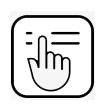
You are not alone. Our CBT therapists advocate for your well-being and will assist you on your path to recovery.
Panic Attacks
Depression
Anxiety
Phobias
Eating Disorder

Cognitive Behavioral Therapy for Depression
Clinical depression disorders are a category of mood disorders that manifest as extended periods of feeling overly sad or empty and disrupt a person's ability to enjoy life. Some common symptoms include:

Cognitive Behavioral Therapy for Bipolar Disorder
Bipolar disorder is characterized by extreme mood swings of mania and depression that have a detrimental impact on quality of life. Although everyone experiences mood swings, those of Bipolar make it difficult to accomplish daily tasks, achieve goal, and maintain good mental health.

Cognitive Behavioral Therapy for Social Anxiety
Social anxiety, sometimes called social phobia, is an anxiety disorder characterized by intense fear in one or more social environments. It makes it challenging for an individual to live the life they want. Some contributing factors to social anxiety may be:

Cognitive Behavioral Therapy for Agoraphobia
Agoraphobia manifests as an intense dread of circumstances, locations, or occurrences wherein individuals may feel confined or struggle to seek assistance. Recognizable traits of agoraphobia encompass:

CBT for Post-Traumatic Stress Disorder
Experiencing a traumatic event can evoke various emotions, including distress, fear, helplessness, guilt, or anger. Individuals may encounter the following symptoms:

Cognitive Behavioral Therapy for Substance Addiction
Using drugs to mitigate stress or emotional discomfort can exacerbate mental health issues and result in significant hazards and dire outcomes.
We help you get to the root of your concerns, overcome emotional challenges, and make positive changes in your life.


855-722-4422

"What you think of yourself is much more important than what others think of you"

– Lucius Annaeus Seneca
Our CBT therapists help you identify negative thought patterns which enables you to embark on self-discovery.

Find Your Therapist

Check Your Insurance

Schedule Your Session

Our CBT therapists are highly trained with years of experience so they can best serve you. They will create a personalized treatment plan to meet your needs and support you every step of the way.
Reach out to a skilled therapist from the convenience and security of your own home. Through personalized sessions, your online CBT therapist concentrates on enhancing your behavioral skills to conquer negative thoughts and fears.
Find Cognitive Behavioral Therapy Nearby
Our Therapists | Insurance & Membership | Services Offered | Privacy
Cognitive behavioral therapy (CBT) is a therapeutic approach that enables you to identify harmful or unhelpful thought and behavior patterns. The goal of CBT is to assist you in recognizing and examining the ways in which your feelings and thoughts might influence your behavior. As soon as you become aware of these patterns in yourself, you can start learning new coping strategies and behavior modification techniques. Cognitive behavioral therapy emphasizes the present moment more when treating anxiety. For some clients, other forms of psychotherapy may work just as well or even better in treating particular conditions. It is imperative to acknowledge that there exists no one-size-fits-all solution.
Cognitive Behavioral Therapy (CBT) can be administered by therapists, psychologists, mental health social workers, counselors, and psychologists through various means such as small-group settings, online platforms, or one-on-one treatment sessions. During these sessions, individuals are guided to challenge their worldview and scrutinize the evidence supporting their negative assumptions.
With cognitive behavioral therapy (CBT therapy), you can tackle significant challenges by breaking them down into manageable components.
CBT therapy categorizes problems into five areas:
1. Situations
2. Thoughts
3. Emotions
4. Physical Feelings
5. Actions
The core principle of cognitive therapy for anxiety is the understanding that these five areas are interconnected and influence each other. For example, your thoughts about a particular situation can often impact your emotional, physical responses, and actions.
When treating mental health disorders, cognitive behavior therapy (CBT therapy) has several advantages over other types of treatment. Some of them are as follows:
As previously mentioned, CBT therapy is effective in addressing a broad spectrum of mental health conditions, including schizophrenia, bipolar disorder, insomnia, and psychosis. Additionally, individuals utilize CBT therapy to manage long-term medical conditions such as chronic fatigue syndrome, fibromyalgia, and irritable bowel syndrome. However, some experts caution that CBT may not be suitable for individuals with brain disorders, head trauma, or other cognitive impairments.
Cognitive behavioral therapy is founded on research and is considered a gold standard of counseling practices. It utilizes conversations, dialouges, and skills developments to root out negative, untrue thought patterns. You can speak honestly with a mental health expert who is impartial and qualified to assist you with your problems in a helpful, nonjudgmental, and secure atmosphere. Typically, cognitive behavioral therapy is conducted over a small number of sessions (usually 5 to 20). You should anticipate outcomes later. CBT therapy typically requires effort and occasionally requires unpleasant tasks. Consider your therapist as a collaborator with whom you will go through a process. You can easily track your progress over time if you continue working together to achieve your established objectives.
Research has demonstrated the efficacy of cognitive behavioral therapy (CBT) in treating a range of conditions, such as eating disorders, severe mental health issues, anxiety disorders, depression, and problems with alcohol and other drugs. Cognitive therapy is the best course of action if you experience any symptoms or are diagnosed with any of these mental illnesses. You can contact Lifebulb or just Google "cognitive behavioral therapy near me" or "CBT therapy near me" to make an appointment.
CBT encompasses a range of techniques and strategies designed to address our attitudes, emotions, and behaviors. These include self-help methods as well as structured psychotherapies. Several specific therapeutic approaches that incorporate cognitive behavioral therapy include:
1. Cognitive Therapy: Aims to identify and modify erroneous or distorted emotional responses, behaviors, and thought processes.
2. Dialectical Behavior Therapy (DBT): Utilizes therapeutic techniques such as emotional control and mindfulness to target harmful or distressing ideas and behaviors.
3. Multimodal Treatment: Asserts that seven distinct but interconnected modalities—behavior, affect, sensation, imagery, cognition, interpersonal factors, and drug/biological considerations—must be addressed to effectively treat psychological issues.
4. Rational Emotive Behavior Therapy (REBT): Focuses on identifying illogical beliefs, challenging them vigorously, and ultimately learning to recognize and alter these thought patterns.
While various forms of cognitive behavioral therapy exist, they all share the common goal of changing ingrained thought patterns that contribute to psychological distress.
The risk of receiving cognitive behavioral treatment is generally low. But occasionally, you might experience emotional discomfort. You can cry, feel disturbed, or become furious during a challenging session. CBT therapy may encourage you to examine upsetting feelings, emotions, and experiences.
Any progress is beneficial. The period of cognitive therapy can vary, though, because every person is different, and mental health disorders are complicated. The fact that you are asking for assistance is crucial. Don't refrain from letting the time it might take to improve your quality of life and better manage your thoughts and feelings discourage you.
CBT has been successfully used to work on various mental health issues. The following are a few of the most typical ailments it is used to treat:
Anxiety - CBT is among the most effective forms of therapy for anxiety. Numerous conditions of anxiety, including phobias, social anxiety, and panic disorder, can be treated with it. The thought-challenging component of CBT is essential for treating anxiety because cognitive distortions (such as "catastrophizing" or focusing on the worst-case scenario) are frequently to blame for the increased sense of anxiety. Gradual exposure, or progressively confronting your concerns rather than avoiding them, is a standard part of the behavioral component of CBT for anxiety. Gradual exposure helps you to control and lessen your fear at each stage. This is a feature of CBT therapy for anxiety that is quite successful.
Depression - CBT was initially developed to treat depression, and it remains one of the most well-liked forms of treatment for the condition today. The treatment process enables the identification of any depressive thoughts and their replacement with more correct, sensible ones. Additionally, it aids in identifying any behavioral adjustments that can lift your spirits.
Eating Disorders - Different forms of CBT are used for many eating disorders and are effective treatments for many eating disorders. It is typically the first line of treatment for binge eating disorder and bulimia nervosa since it is one of the most successful methods for treating these disorders. The treatment of anorexia nervosa typically takes a multidisciplinary approach and is more complex. However, CBT is among the most frequently advised treatment forms and has a significant impact.
Obsessive - Compulsive Disorder (OCD) - One of the primary OCD therapy modalities that are advocated is CBT. People with OCD can benefit from CBT therapy by challenging their behavior and understanding the thoughts that fuel the compulsive behavior. Understanding what motivates your unwanted intrusive thoughts and routines will help you learn to respond differently in therapy, which will eventually lead to a decrease in their frequency.
Schizophrenia - Psychosis, which involves delusions or hearing voices, is frequently experienced by people with schizophrenia. Since stress has been shown to exacerbate schizophrenia symptoms, these symptoms can be very stressful. Cognitive behavioral therapy can break this vicious cycle, assisting clients in managing their symptoms and enhancing their quality of life, mainly when utilized soon after an accurate diagnosis.
According to research, CBT is the most effective treatment option for depression and anxiety. Although there is no gaurantee of a "cure", CBT has high rates of recovery and is considered the gold standard of therapy practices.
Your initial session with a Lifebulb CBT therapist or counselor goes beyond merely gathering background or demographic information. We understand that seeking help is a significant decision and can be challenging. Therefore, our first offline or online cognitive behavioral therapy session with you is dedicated to offering you the assistance you're seeking. We aim to demonstrate that the therapy process can be effective with the right effort and commitment from both sides.
We advocate for swift and hassle-free access to therapists or counselors. Our procedure is simple: peruse the bios of our CBT therapists to identify your ideal match and book either a virtual or in-person counseling session online. Alternatively, you can reach out to our office, and a team member will ensure you are paired with the most suitable therapist or counselor based on your needs and objectives. Whether opting for online or offline cognitive behavioral therapy, your therapist will craft a personalized treatment plan to assist you in achieving your specific goals.
If you are experiencing an emergency right now, please call 911 right away. While Lifebulb is not a crisis center and Lifebulb therapists and counselors are not emergency services, we understand that urgent matters can and will pop up from time to time. You will have direct email and phone access to your therapist, who will make their best effort to be available to you when you reach out. Depending on your specific disorder treatment plan, your CBT therapist may provide you with resources to use or contact when situations occur beyond the scope of your online therapy or offline therapy work together.
Upon scheduling a session with your therapist or counselor, our team will send you a confirmation via email, detailing the date and time of your appointment along with a hyperlink to access the virtual cognitive behavioral therapy room. Simply click on the link and log in to the virtual therapy room a few minutes prior to your session, where your therapist will be awaiting your arrival.
We utilize a HIPAA-compliant video counseling service seamlessly integrated into our Electronic Health Records System to facilitate smooth online therapy sessions for our clients. Booking a session with our CBT therapist is simple. You can either call our office or request a specific session time through our website. A team member will assist you in scheduling with the best-suited therapist or confirm your online session details. We'll also handle insurance information and a few straightforward policies, and then email you a confirmation of your session date and time, whether it's for in-person or virtual therapy.
Scheduling a session with our CBT therapist is convenient and adaptable, offering various options to suit your needs. You can call our office directly, and a team member will assist you in booking with the most suitable therapist. We'll handle insurance details and a few straightforward policies, then send you a confirmation of your session date and time, whether it's for an in-person or virtual appointment. Alternatively, you can choose your preferred therapist from our website, select a session time that suits you, and we'll follow up with you to confirm your appointment details.
We have a flexible cancellation policy. Call our office or reach out to your counselor or therapist 24 hours or more before your online therapy session time to cancel or reschedule any appointment at no cost.
The therapy often spans a long-term duration, aiding in the enhancement of overall mental well-being. Research has shown that therapy can improve emotions and behaviors while fostering healthy adaptations in both the brain and body. While there is no assured "cure," cognitive behavioral therapy facilitates positive lifestyle modifications.
We accept numerous major commercial insurance plans such as Aetna, Amerihealth, Cigna, Optum Health, United Healthcare, Tricare, and more. If your insurance provider is not listed, we are pleased to verify your benefits to determine if we can accept them. If not, we offer you a competitive self-pay rate.
At Lifebulb, we don't have any recurring memberships or fees. We firmly believe that everyone deserves to access the highest quality online CBT therapy services without enduring continuous out-of-pocket expenses. With us, your only session costs will be determined by your insurance provider or our affordable self-pay rate.
While numerous practices solely cater to self-pay clients or out-of-network benefits, at Lifebulb, we strive to minimize your costs by accepting most major insurance plans. Typically, the out-of-pocket expense per online therapy session is a nominal copay determined by your specific insurance provider and plan. Additionally, we provide a self-pay rate lower than many practices for individuals without insurance or those who prefer not to utilize their healthcare benefits for in-person or virtual cognitive behavioral therapy.
At Lifebulb, we are highly selective about our hiring process to ensure that we provide the best support for your cognitive behavioral therapy goals. However, we acknowledge that not every therapist may be the ideal fit for every client. If your CBT therapy experience falls short of your expectations, we are committed to assisting you in finding a therapist that better suits your preferences.
We prioritize the protection of your privacy at Lifebulb. Operating as a covered entity under HIPAA guidelines, we adhere to all HIPAA rules and regulations. If you have any inquiries or suggestions regarding our privacy and security practices, please feel free to reach out to us at privacy@lifebulb.com. We are here to assist you.
Unfortunately, therapists who do not enjoy their workplace may struggle to provide their clients with the highest level of counseling and therapy. That's why, at Lifebulb, our CBT therapists are our top priority. This ensures that your counselor or therapist can offer you, their client, the best online therapy service because they derive satisfaction from their work, the environment they work in, and the colleagues they work with during sessions.
All our online therapy sessions are conducted by our CBT therapists in private spaces, and our video platform is integrated into our HIPAA-compliant Electronic Health Records system. This ensures that your face, voice, and data remain private and protected at all times.
Lifebulb operates as a covered entity under HIPAA guidelines, meaning we adhere to all HIPAA rules and regulations. If you have any inquiries or suggestions regarding our privacy and security practices, please don't hesitate to contact us at privacy@lifebulb.com. We are here to assist you.
Start your path to better mental health. Read to learn more about cognitive behavioral therapy & get the help you are looking for.